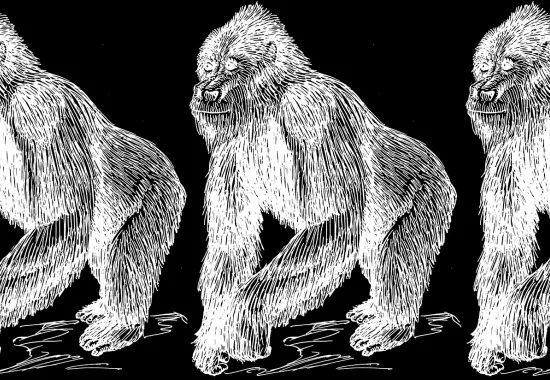Proposing a World without a Mother: Grief and Creative Nonfiction as a Sense-Making Tool
REVIEW OF LITERATURE
Introduction.
The subject of my essay is grief and the method of exploration is creative nonfiction. I read the literature on both. I begin with the subject itself. Theories on grief may suggest valuable approaches to the craft of creative writing. By exploring how creative nonfiction and essays work, I develop my own methodology.
Literature on Grief and Grieving.
One cannot escape Kübler-Ross’s theory of the stages of grief; the chain of denial, anger, bargaining, depression, acceptance is ubiquitous in pop culture. Although the theory of these stages is meant to provide the bereaved a way to think about and name their feelings, they are commonly misunderstood to represent a universal and set order of grieving (Kübler-Ross and Kessler 7).
Your mother’s surgery and tongue reconstruction make you angry. It was no small thing—removing slice after slice of tongue until the sample came back clean, removing muscle from her right arm, her writing hand since her left arm muscle was too weak, to reconstruct it, removing a patch of skin from her thigh to cover the wound on her arm. It took the whole month she lived afterward to start to recover. She still had the feeding tube in her stomach when she died. She was just starting to be able to eat baby food. She had left the house one time not for a doctor’s appointment. When the cancer came back, the new doctor said there was never any hope that it wouldn’t, not with the kind of cancer and her antirejection medications; he didn’t know why they had done the surgery at all.
Because the bereaved do not all undergo the same journey with five set phases, some argue that the concept may be “dangerous. Perhaps it may do more harm than good” (Bonanno 22). An alternate way of thinking about grieving patterns is in terms of “reactions,” the most common of which Bonanno identifies as chronic grief, recovery, and resilience (6-8).
Despite increasing awareness that the stages model is not descriptive of a one-size-fits-all lockstep of grieving, the idea of stages or steps remains in the idea of grief work. The idea that “grief is necessarily lengthy and debilitating” remains widespread, along with the idea that “the only way out is to work through it—in a series of stages, steps, tasks, phases, passages, or needs” (Konigsberg 40). In fact, many of the tasks “grief work” theories demand sound reminiscent of Kübler-Ross’s stages. Lindemann’s tasks include giving up attachment, adapting to the loved one’s absence, and forming new connections; Parkes and Weiss’s tasks include understanding and accepting the loss, as well as forming a revised sense of self; Worden’s tasks include accepting the loss, dealing with the tumult of emotions, adapting to the loved one’s absence, and giving up attachment (Attig 47).
You try to change. You decide to go to library school. You go with impure motives. You go not because you want to go to library school but because you do not want to do other things. What you do want is time, and you hear that library school is unchallenging. You hear that librarians love their jobs. The program is two years, two years of being on hold. You have been to grad school before, and you know that it’s a kind of suspended animation: that for X number of years, no one expects you to work an unsatisfying office job for forty hours a week, that you can return to the kind of life where you nap, where you write down your dreams and turn them into short short stories. You hope that you will be changed but that you will be the same person.
You change without trying. You gain the dead-mother weight of ice cream and chocolate candy and bags of chips—an apple, like your mother.
For a while you try to think to yourself, your mother is under the ground, to be blunt about it, to not forget in some moment of living that she is not. You try to tell yourself this when you want to eat ice cream because you are sad. Your mother is under the ground. You mother will never eat anything ever again. But you eat the ice cream.
You are laid off from your job. Your days lose their structure; your weeks, their pattern. You already have the kind of life where you can nap and write short short stories, but you do not. You do not write.
Safer believes this work to be rewarding beyond the movement toward a new normalcy from debilitating grief. She states, “Every adult whose parents die is entitled to death benefits. They are your ‘deathrights,’ part of your legitimate inheritance” (Safer 205). Even more conventional thought is that relearning ourselves and our worlds is a way of putting ourselves back together, of going on (Attig 105, 116). At the same time, loss recalls loss; it is impossible to grieve only the present loss when past losses stir and those hard-won adaptive changes feel like loss as well (Kübler-Ross and Kessler 73).
You try to stay the same. Your mother took you and your sister to the library every Saturday. She let you read whatever you wanted. You started a book in the car on the way home or standing in line to check out if there was one. She let you read while eating a sandwich in the living room when you got home. When you were in high school, she would drive you to the next county closer to Atlanta to go to their bigger library. If you become a librarian and she never knows about it, it’s not something that would be surprising. The potential was always there. Would she be happy that you would be setting off to spend so much time in places where you were perhaps happiest together?
You stay the same person without trying. Everywhere you go, there you are, alive, and your mother is under the ground. You enter the unchallenging library program and lie awake at night fretting that you will fail every assignment.
Literature on Creative Nonfiction.
In thinking about creative nonfiction, I will consider various types of essays with equal interest toward what they offer us as readers and writers. All essays worth writing—or reading—offer their writers a chance at encountering a truer self, if not a truth. Epstein states, “I have often felt, in fact, that the only coherent, consecutive thought I am capable of comes about through my own writing and through reading other writers” (21).
After your mother’s death, all of the things that you enjoyed become unpalatable. You stop running. You don’t go to yoga. You don’t write. The running, the yoga—they can’t compete with sitting alone with your thoughts, with letting the dread spiral in your belly. The writing is terrifying. Unthinkable that you could write when your mother was under the ground. And if you did, what might you write? Wouldn’t it be wrong to write about her? Wrong to ever again write about anything else? And did you want to find out what you might find out if you let yourself write?
The metaphor of the essay as an experiment is common. D’Agata says, “If essays are experiments then they are journeys, too. . . . Why bother conducting an experiment at all if you know what results it will yield?” (231).
Your mother died while you were about to make sandwiches. Your aunt and uncle had sent you and your sister to the grocery store, and it was a relief to be out of the house for half an hour. It was a relief to move among people who didn’t know that you were waiting for your mother to die. It was difficult to pick out food. You had a hundred-dollar bill. You thought you were buying food for supper that night, maybe, but you knew you were buying food you would eat after your mother died. What would you like to eat after your mother died? You brought home bread, the makings for sandwiches, at least one frozen pizza, and fifty dollars.
Lopate says, “The essay is not, for the most part, philosophy; nor is it yet science. How seriously ought we to take its claims of being experimental? It lacks the rigor of a laboratory experiment; it does not hold on to its hypotheses long enough to prove them. But it is what it is: a mode of inquiry, another way of getting at the truth” (xlv).
You and your sister put the groceries away and returned to your mother, who in the half hour could no longer sit up in bed. When you went back to the kitchen to tell Daddy she was gone, he couldn’t believe it. He thought she had months, even when the tumors in her mouth stopped her from talking. He was making sandwiches that required slicing. He had something—a tomato, an onion—in his hand with the knife over the trashcan. He kept making the sandwich and ate it. You remember him making two.
Champion of the lyric essay, D’Agata defines it as “its own hybrid version of the [nonfiction] form. It takes the subjectivity of the personal essay and objectivity of the public essay, and conflates them into a literary form that relies on both art and fact, on imagination and observation, rumination and argumentation, human faith and human perception” (436). In the end, he defines the lyric essay as “an argument that has no chance of proving anything” (436). If we accept that, then why read or write such monstrous texts?
In lyric essays, readers are asked to do the work of figuring out potential conclusions; as Miller and Paola note, “the writer, by surrendering to the fragmented form, declines a foregone conclusion” (106). They argue that writers of lyric essays “must surrender to the writing process itself to show us the essay’s intent” (107).
Much later, after the hospice nurse declared the death, after the funeral home brought the body through the living room—they don’t close the eyes, they only do that on television—after the visitors and your aunt and uncle left, you told your brother-in-law that you would eat after he and your sister left so that they would leave.
An essay is often not even about what it proclaims to be about. No matter what a writer is exploring, he/she is always at heart exploring him-/herself.
You did not eat. You did not eat the next morning. All morning long in the funeral parlor you entertained guests. Eventually you went to the kitchen in the back where there were remnants of the food the women of your family’s church had brought. You cut one-quarter of a grocery-store chocolate cake, tall, impeccable thick icing. You ate, thinking, your mother is under the ground, even though she wasn’t yet, she was in the next room. You ate mainly the icing.
Epstein sets out that the distinguishing characteristic of the personal essay is that “all claims to objectivity are dropped at the outset, all masks removed, and the essayist proceeds with shameless subjectivity” (18). Lopate defines the “plot” of the personal essay as the writer delving closer and closer to honesty (xxv).
Now you have told the story of the your mother’s death. You have gotten through it one time in writing, in words on a screen, in words that you can print and hold in your hands or tear with your hands.
What now? Can the reader mark your progress on Freytag’s Pyramid, or are you the frustrating narrator, unchanging and stuck?
There is more to tell. There are better ways to tell it. You are a long way from any of those. You are one day closer to integrating the self that wants to be the same with the self that wants to be different, but you still don’t believe that it can happen. You are one telling of the story closer to a telling that will make it hurt less but also one telling of the story closer to a telling that will make it hurt more, and that is essential.
Recommended
Schizophrenic Sedona
Recense (realized)
Notes on Hands





